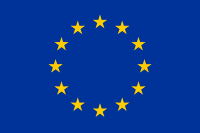White paper
Legal recommendations addressing policymakers in the cultural heritage field
About this process
This process belongs to Policy Recommendations Toolkit
Legal recommendations addressing policymakers in the cultural heritage field
The white paper presents legal recommendations from research conducted in the inDICEs project addressing policymakers in the cultural heritage field on European and national levels.
The recommendations rely on recognising the socio-economic values generated in digital cultural heritage following the Culture 3.0 paradigm by Pier Luigi Sacco. This paradigm blurs the boundaries between producers and users. “Cultural producers and users are enabled to interchange roles in a wide range of possibilities”. It thus makes it necessary to redefine the role of copyright itself and its normative shape in the new realm of the heritage sector. Traditionally, the regulatory approach places the artwork understood as an object of ownership in the centre of attention, together with the market mechanisms of its production and distribution, and treats CHI's activity as a marginal element of the system. In contrast, the white paper approach places the artwork as part of the cultural heritage at the centre and CHI's activity as an essential aspect to extract from this heritage the socio-economic values. The traditional approach deprives society of these benefits by insufficient consideration of these values.






Share: